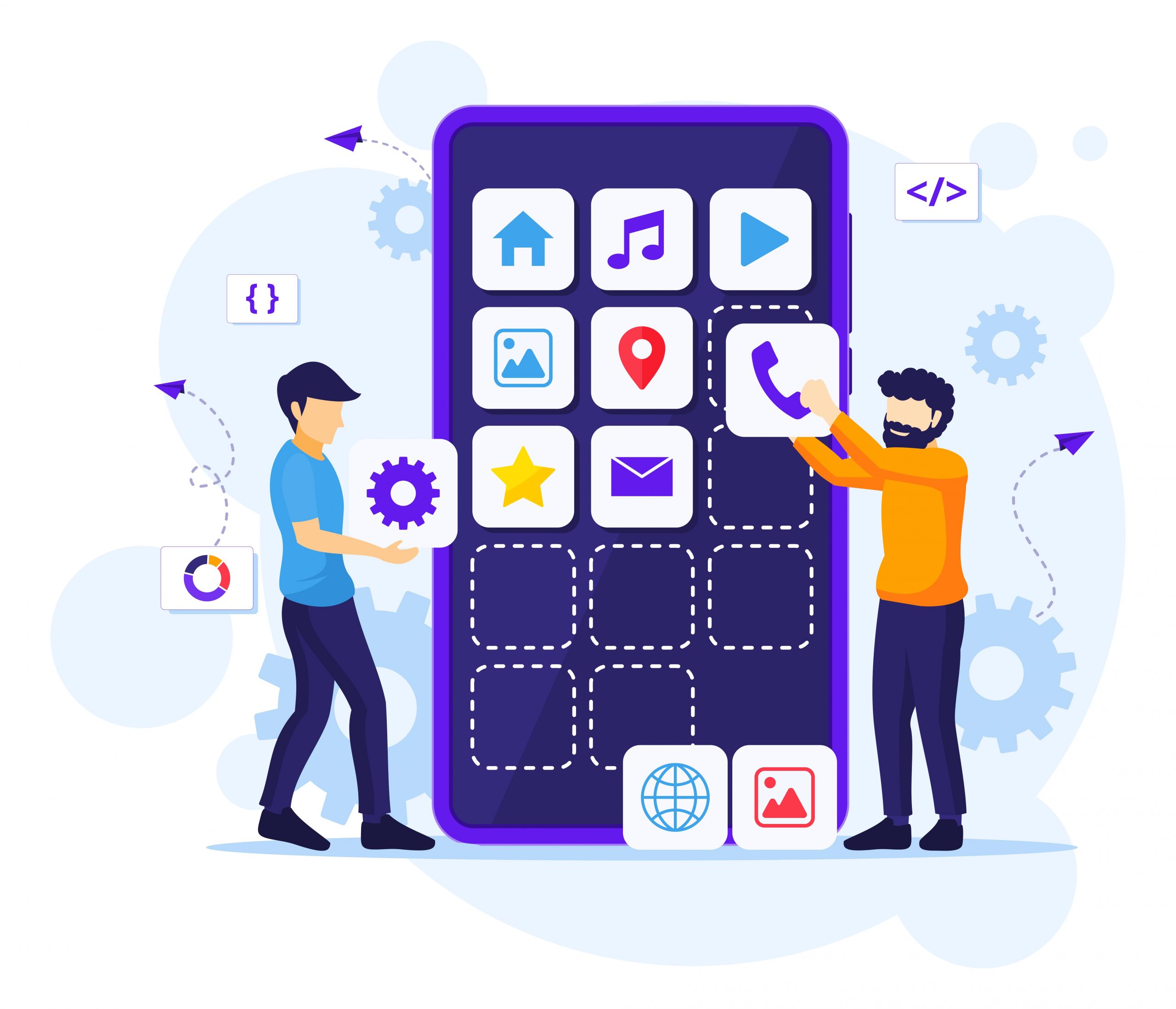From the start, developers were limited to native platform-specific applications that were incompatible with other platforms. The increasing demand for customized mobile apps prompted new approaches for reducing development time. That’s how cross-platform development began. Near-native platforms, such as React Native and Flutter, are gaining popularity and provide more chances to create native-like experiences. Today, we will discuss the advantages of cross-platform mobile app development.
So, What is Cross-Platform Mobile App Development?
Cross-platform mobile app development is an Android and iPhone application service that has become very popular in recent years because of the difficulties associated with developing applications for different classes. This strategy allows the programmer to write applications that operate through all the operating systems without writing for every platform.
The emergence of cross-platform development frameworks, such as React Native, Flutter, and Xamarin has enabled the developers to come up with a codebase that works across several platforms thus delivering faster time-to-market, low development costs, and wide consumer reach.
Also Read: The Importance of Mobile App Testing and Quality Assurance
Advantages of Cross-Platform Mobile App Development

1. Quicker growth
Cross-platform solutions eliminate the need for developers to create separate Android and iOS projects by allowing them to work with a single codebase that manages both iOS and Android. Everything is located in one location. Cross-platform apps support several devices and are developed as single projects. Because a large portion of an application’s code may be shared between platforms, development times are significantly reduced.
2. Reduced expenses
Cross-platform apps can be roughly 30% less expensive than native ones when developing distinct iOS and Android apps. Large portions of code and other assets can be shared between the iOS and Android platforms, so you only need to create one project for each platform. Because cross-platform development is quicker in this way, it is less expensive overall for each platform than creating native mobile apps.
3. Continual User Experience
Cross-platform applications provide a unified user experience across several platforms—they have the same appearance and functionality. Improved user happiness and loyalty can result in increased engagement and retention when there is consistency in the user experience.
4. Simple Upkeep
Cross-platform programs just require one codebase, making upgrades and maintenance quick and simple. Instead of working on several platform-specific codebases, developers only update one codebase, which lowers maintenance costs and minimizes app downtime.
5. Obtaining Native Features
Cross-platform frameworks give developers access to the device’s native features and functionalities, like the GPS and camera. This can improve the user experience and give each platform unique features.
6. Bigger audience
When it comes to mobile app development, many app owners are faced with a dilemma: should they design an Android or iOS application first? Regardless of whatever platform has a larger market, there is always a trade-off that might be costly. Starting with a cross-platform solution gives you access to a far larger audience right now, allowing you to target both markets at once. You can also create for one platform first to get the product out faster, and then quickly iterate to add support for the second platform.
7. Rapid prototyping
Cross-platform development is perfect for swiftly prototyping and testing app concepts across several platforms. This might help you determine the most viable app concept before devoting time and resources to development.
8. Consistency across platforms
iOS and Android differ in terms of constructing navigation and design. In cross-platform programming, the most common UI variations are addressed by default. Even in a well-communicated native development team, there may be minor variances in how functions are implemented. This circumstance is uncommon in cross-platform programming because the platforms use the same codebase. It also allows you to create a more consistent brand identity in apps across both platforms with less effort.
Developing cross-platform apps can help firms prepare for market shifts, such as a shift in operating system market share. Apps can be readily changed to work on new platforms or devices without having to start from scratch.
Also Read: Importance of UI/UX Design in Mobile Apps Development
Does your Business need Cross Platform Mobile App Development?
When looking at the various forms of mobile app development services, you might be asking yourself whether cross-platform mobile app development is ideal for your enterprise. Even though there are many pros to cross-platform development, they may not be the best decision for all companies or applications.
To begin with, the specificity of the requirements characteristic of your application must be addressed. Unless your app requires advanced, platform-specific features or functionalities that aren’t available through cross-platform development platforms, there are many from which to choose. Native development might have to take place for all the platforms to do full justice at the optimum capacity.
Secondly, consider the assets you have for developing any aspect of the mobile app. Cross-platform development is very significant and can help to save a lot of money overall, but you do require knowing the best practice of working with different frameworks such as React Native or Xamarin. When your team does not have the required knowledge or resources, enlisting a third-party group that is proficient in this particular software development service could be more efficient.
The factor that should be taken into account is the audience you are creating an app for. If your app is largely very specific to one platform then native development offers many more advantages. Nevertheless, if your app is designed for generally accessible to the public and it should function on a variety of platforms, cross-platform development would be an excellent solution.
Eventually, the overall choice to opt for the cross-platform mobile app development approach will solely be inspired by your peculiar requirements and aspirations. Based on the above considerations, evaluate the pros and cons to decide whether cross-platform development suits your business.
Checkout our trending blog: Enterprise App Development Vs Standard App Development
Final Thoughts
Cross-platform mobile app development saves time, money, and resources by allowing you to write a single codebase that can operate on many platforms. You may reach a larger audience and increase your market share by creating a single app that works across platforms and operating systems. Other advantages of app creation include a consistent user experience, ease of maintenance, and access to native functionality.
Contact us immediately to begin your cost-effective development journey. Our team provides high-quality bespoke application development and other software development services.







